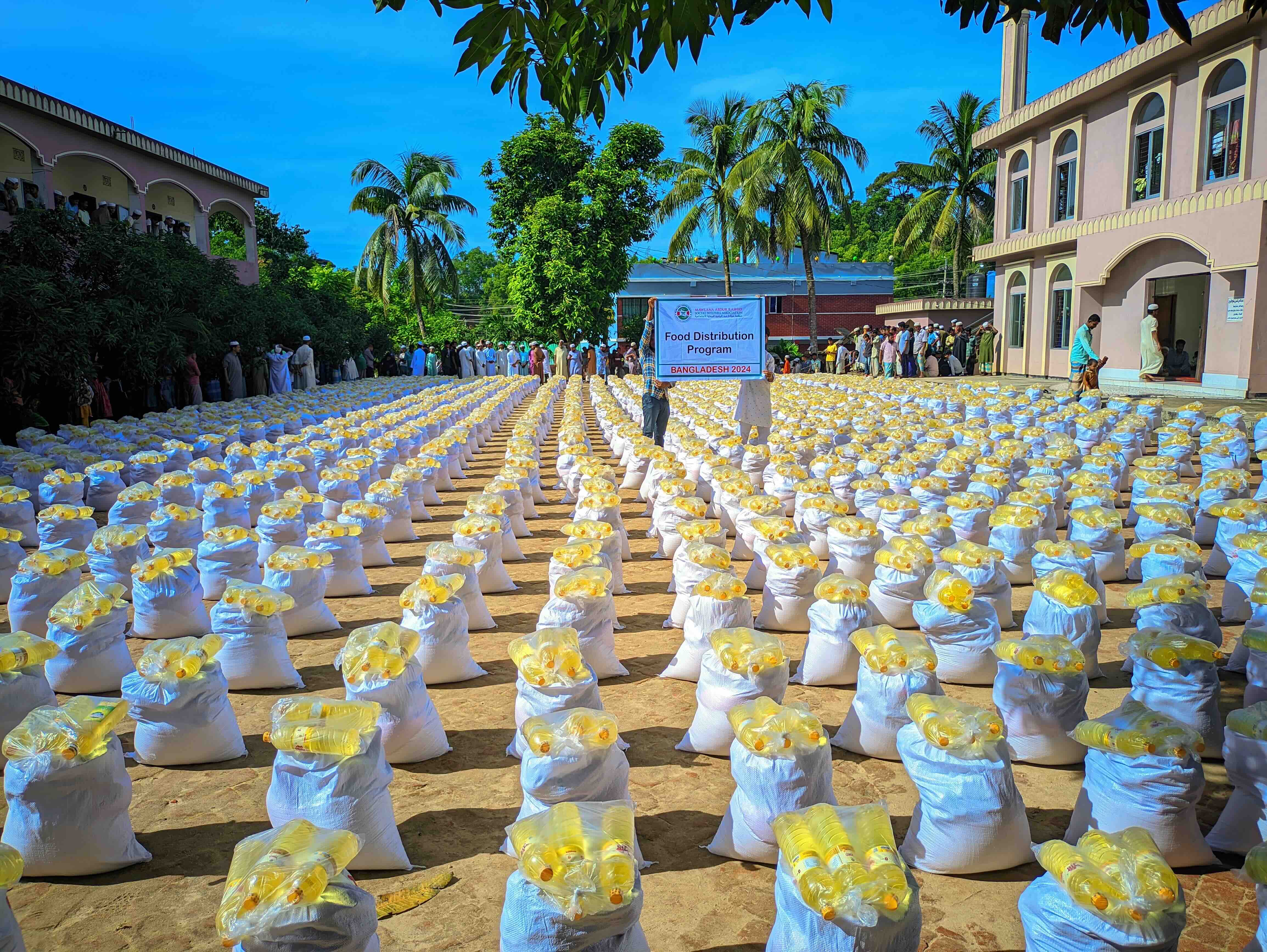
We distribute Food package for Bangladeshi
In recent years, food package distribution has become a vital component of humanitarian efforts in Bangladesh, particularly in response to natural disasters, economic challenges, and the COVID-19 pandemic. This article delves into the significance, challenges, and impact of food package distribution in the country.
Importance of Food Package Distribution
Bangladesh, with its dense population and frequent exposure to natural disasters like floods, cyclones, and droughts, has a significant portion of its population living below the poverty line. Food insecurity is a persistent issue, especially in rural areas and among marginalized communities. Food package distribution is crucial in these circumstances as it provides immediate relief to those who are unable to access sufficient nutrition due to economic constraints or emergency situations.
Key Players in Distribution
Mawlana Abdur Rashid Socail Welfare Assocaition MARSA is distributing food packages to support communities in Bangladesh. This initiative is likely part of their efforts to address food insecurity and provide essential supplies to vulnerable populations.
Distribution Mechanisms
The distribution of food packages typically involves several steps:
- Needs Assessment: Identifying the most vulnerable populations through surveys and data analysis.
- Logistics Planning: Coordinating with local authorities, transporters, and storage facilities to ensure the timely delivery of food packages.
- Packaging: Ensuring that food items are securely packed, often including rice, lentils, oil, salt, and other essential non-perishable items.
- Distribution: Food packages are distributed either through direct delivery to households or through distribution centers set up in affected areas.
During the COVID-19 pandemic, distribution efforts were adapted to minimize contact, with measures like door-to-door delivery being implemented to reduce the risk of virus transmission.
Challenges Faced
Food package distribution in Bangladesh is not without its challenges:
- Logistical Hurdles: Infrastructural limitations, particularly in remote and flood-prone areas, make it difficult to reach all those in need.
- Corruption and Mismanagement: There have been instances where food aid has been misappropriated or distributed inequitably, leading to widespread criticism.
- Funding Constraints: Sustained food distribution efforts require substantial financial resources, which are often limited.
- Cultural and Dietary Considerations: Ensuring that the food provided meets the dietary preferences and nutritional needs of diverse communities can be complex.
Impact on Communities
The impact of food package distribution on vulnerable communities in Bangladesh is profound. It not only provides immediate relief in times of crisis but also supports longer-term food security and stability. In many cases, these distributions have been lifesaving, particularly during severe floods or the height of the COVID-19 pandemic when many people lost their livelihoods.
Food package distribution also plays a role in community cohesion. In some cases, these efforts are carried out in collaboration with local communities, fostering a spirit of solidarity and mutual support. Additionally, the visibility of such efforts can raise awareness about the broader issues of poverty and food insecurity, encouraging more sustainable and systemic approaches to addressing these challenges.
Future Outlook
As Bangladesh continues to face the impacts of climate change, economic instability, and other challenges, the need for effective food package distribution will likely remain critical. Strengthening the capacity of local organizations, improving logistical
